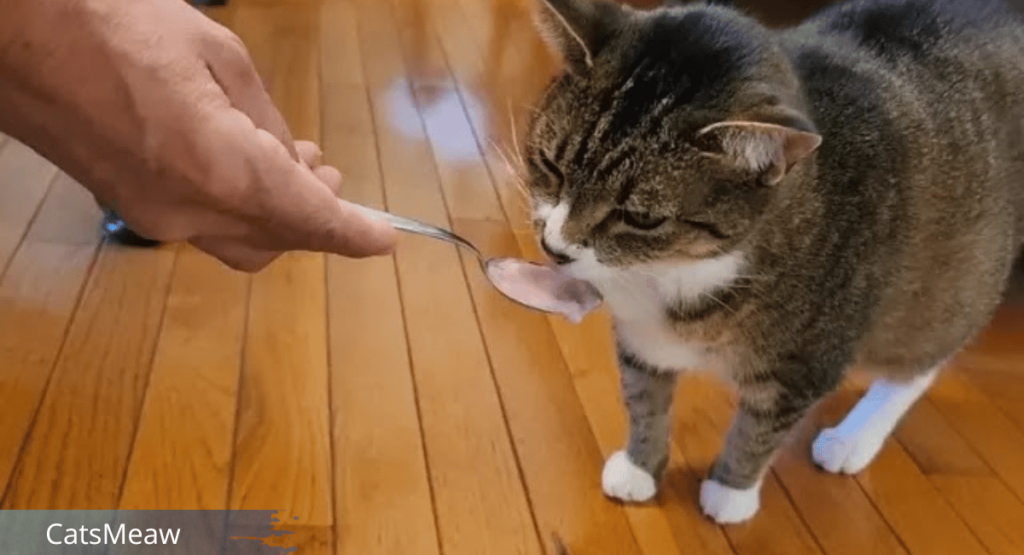When it’s time for dessert, you can’t resist giving the end of your yoghurt pot to your cat to lick. And for good reason, each time it’s the same ritual: your furball sits by your side and looks at you with such a pleading look that it’s impossible for you not to give in. And then, you say to yourself that yogurt is not very dangerous… But are you so sure?
Feed yogurt to Your cat?
Table of Contents
1- Your cat is probably lactose intolerant
As a result, most of cats become lactose intolerant as they age. Indeed, it is only when they are kittens and depend on their mother’s milk to survive that they manage to digest it well.
Then, when they are no longer forced to consume milk, around the age of 12 weeks, they stop producing the enzyme necessary for its digestion. They then become entirely carnivorous and their diet must, in this sense, consist mainly of meat.
For this reason, many adult cats are intolerant or even allergic to lactose.
Our Pick: Treat Pastes for Cats
If they are led to eat it, they are then very often victims of digestive disorders (vomiting, diarrhea, gas, etc.). So, if your cat vomits or has diarrhea regularly, it could be because of that “harmless” yogurt you give it almost every day.
2- Not even a yoghurt from time to time?
Well, of course, compared to other dairy products (cheese, cream, butter, etc.), yogurt is the “least worst” of them. It even contains good bacteria believed to aid digestion.
And for good reason, the latter are able to break down lactose into lactic acid. However, since it is lactose that cats struggle to digest, the fact that it is transformed into lactic acid makes things easier.
So plain yogurt may be easier for your cat to digest than other dairy products. If it is not allergic to lactose, you can therefore feed yogurt to your cat in very small quantities (1 teaspoon). But only occasionally, even exceptionally. On the other hand, at the slightest sign of digestive problem, definitely stop giving it to him.
Related: Best Way To Know if Your Cat is in Pain
3- And what about flavored yogurts?
On the other hand, if there is one thing you should avoid, it is sugar yogurts and flavored yogurts (fruit or vanilla for example). Indeed, they contain a lot of sugar, artificial sweeteners or preservatives. However, these substances are very harmful to the health of your cat.
Indeed, felines do not have the enzyme amylase, necessary to digest sugar. Additionally, they lack the necessary sensors in their mouths to detect sweet taste.
Giving sugar to a cat, in any form whatsoever, is therefore not only dangerous for it but it is also completely useless.
